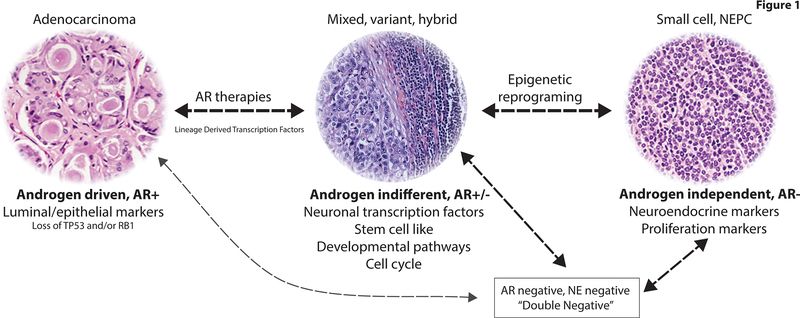Mutations in tumor suppressor genes
The Goodrich lab is interested in how mutations in tumor suppressor genes like RB1 and TP53 drive cancer progression and therapeutic resistance.
Our recent findings suggest alterations in these genes cause cancer lineage plasticity, the ability of some cancers to radically reprogram their lineage phenotype.
Lineage plasticity allows cancer cells to survive highly effective molecularly targeted therapies by adopting a lineage phenotype no longer dependent on the therapeutic target. In our view, the adaptability afforded by lineage plasticity is a key characteristic that makes cancer difficult to cure.
We employ genetically engineered mice, cell lines, and patient derived organoid models to discover molecular mechanisms mediating cancer lineage plasticity. We then use this information to devise and test therapies to suppress cancer lineage plasticity and improve patient outcomes.
Featured publication
Chan JM, Zaidi S, Love JR, Zhao JL, Setty M, Wadosky KM, Gopalan A, Choo ZN, Persad S, Choi J, LaClair J, Lawrence KE, Chaudhary O, Xu T, Masilionis I, Linkov I, Wang S, Lee C, Barlas A, Morris MJ, Mazutis L, Chaligne R, Chen Y, Goodrich DW, Karthaus WR, Pe'er D, Sawyers CL. Lineage plasticity in prostate cancer depends on JAK/STAT inflammatory signaling. Science. 2022 Sep 9;377(6611):1180-1191. doi: 10.1126/science.abn0478. Epub 2022 Aug 18. PMID: 35981096.
